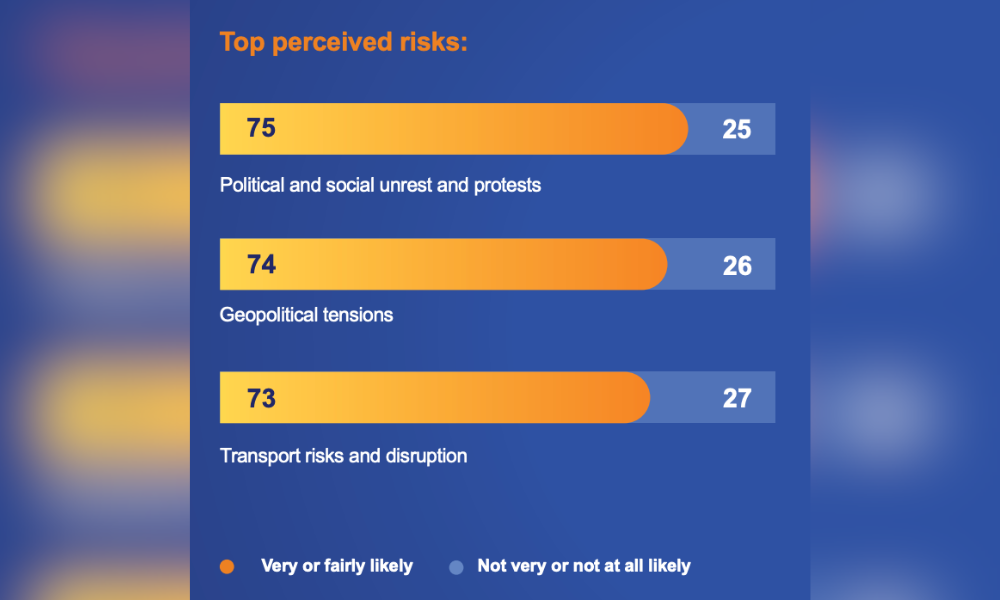
'Unstable, unpredictable and uncontrollable nature of global events' contributing to employee stress, burnout

Three in four senior decision-makers see political and social unrest, including protests, as significant risks for their operations in 2025, according to a new report.
The 2025 Risk Outlook report from International SOS has unveiled that geopolitical tensions emerge as a pressing concern for businesses regarding their impact in the workplace in the coming year.
It found that 75% of the respondents perceive political and social unrest [as] likely to have a significant impact on their [business] or people in the next 12 months.

The findings come at a time when global challenges are stacking up, with 65% of respondents reporting a noticeable increase in risks over the past year.
In fact, some businesses across the world are already experiencing the impact of social and political unrest in their workplaces.
In South Korea, the short-lived martial law declaration of President Yoon Suk-yeol sparked widespread protests among union workers calling for his resignation.
In the United States, employers have noticed division in workplaces following its most recent presidential elections, leading to harassment or discrimination due to political beliefs as well as lower productivity.
"The interconnected nature of today's risks are creating an environment where issues escalate quickly and unpredictably," said Sally Llewellyn, Global Security Director at International SOS, in a statement.
"Geopolitical tensions are triggering supply chain disruptions and cyber threats, while misinformation and disinformation amplify confusion, eroding trust within organisations and across borders."
The "unstable, unpredictable and uncontrollable nature of global events" are contributing to employee stress and burnout, according to Irene Lai, Global Medical Director at International SOS.
The report found that mental health and burnout are emerging as major challenges, with 78% of surveyed decision-makers predicting that stress and burnout will significantly impact their people and operations in the next year.
Other wellness risks that employers expect to impact organisations include:
"Businesses that proactively invest in employee wellbeing are building operational resilience," Lai said. "Creating a healthy workplace includes protecting and promoting mental health, which will not only help employees weather these stresses but also drive higher engagement, productivity, and retention – essential for navigating a rapidly changing world."
Llewellyn also underscored the importance of taking predictive strategies to address risks at work.
"While the challenges are significant, organisations that take a systematic approach to understanding and mitigating these layered risks can not only protect their people and operations but also strengthen their resilience in an era of uncertainty," she said.